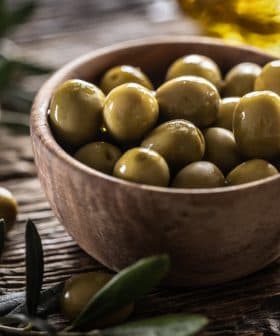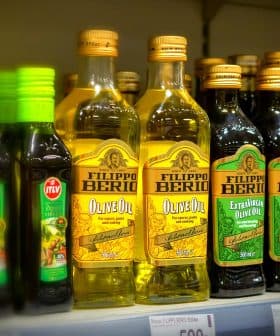Italy Adopts EU Provisions on Non-Refillable Bottles
Italy’s Chamber of Deputies approved new EU regulations requiring olive oils in Italy to comply with specific labeling and package rules, including non-refillable caps. The law aims to improve the quality and transparency of the virgin olive oil chain, with fines for non-compliance and a focus on clearer product labeling.

With an unusually fast procedure, Italy’s Chamber of Deputies approved EU regulation 2013 bis (S1533), whose article 19 contains important rules about olive oil.
Following the approval, the Italian Parliament finally put into force the new law concerning the “quality and transparency of the virgin olive oil chain.”
The rules were part of the Italian legislation regulating the quality and transparency of virgin olive oil production and distribution signed by former senator Colomba Mongiello, and approved in Italy in January, 2013.
Critics complained that the new laws were unfair toward free trade within the EU. The text of the law was then changed in some of its parts and finally approved by the European Parliament. Similar laws have already been approved in other European countries such as Spain and Portugal. The Italian Parliament had to approve the EU regulation to bring it into force in this country.
According to the new law, which follows Europe’s recently updated regulations on olive oil labeling, the indication of the origin of mixtures of olive oils originating from more than one EU state or any non-EU country must be printed more clearly on the package labels, and with brighter colors compared to the background color, other indications and selling denominations.
It is also expressly forbidden to attribute organoleptic properties to olive oils other than extra virgin and virgin ones (“virgin” was added in the latest version).
As for Italian extra virgin olive oil, the law also changed the labeling obligation regarding alkyl esters and ethyl esters quota, ratifying only the 30mg/kg limit for ethyl esters.
Another important change in the legislation is the required use of non-refillable bottle caps.
According to the new rules, virgin olive oils sold in packages at retail outlets must be presented in labeled containers in accordance with the regulations in force, equipped with suitable locks (so that their content cannot be altered without opening the package seal), and provided with a security system preventing the re-use after depleting the original content indicated on the label.
The European regulation encourages non-refillable, pre-sealed and disposable oil packaging, so operators cannot dilute olive oil with low-quality products. Those who don’t follow this law will be punished with a €1,000 to €8,000 fine and the confiscation of products. In the UK, the Rural Payments Agency has said its enforcement of the EU provision will extend to the “fill-your-own” shops whose operations fail to comply with the new law.
UE producers should also improve labeling, as the European Commission is insisting on labels that show the name of the product and its origin more clearly. Brussels hopes the changes will allow olive oil producers to strengthen their brands on the global market. Clear labels can also provide consumers with more precise information about the properties of pre-packaged foods.
Criticism, however, has not been lacking, particularly from restaurant operators: they will be forced to offer a more expensive oil — specifically packaged and non-refillable — to their consumers, which is seen by some as an unnecessary burden for small businesses that usually offer oils and vinegar to all customers to enjoy free with their food.









